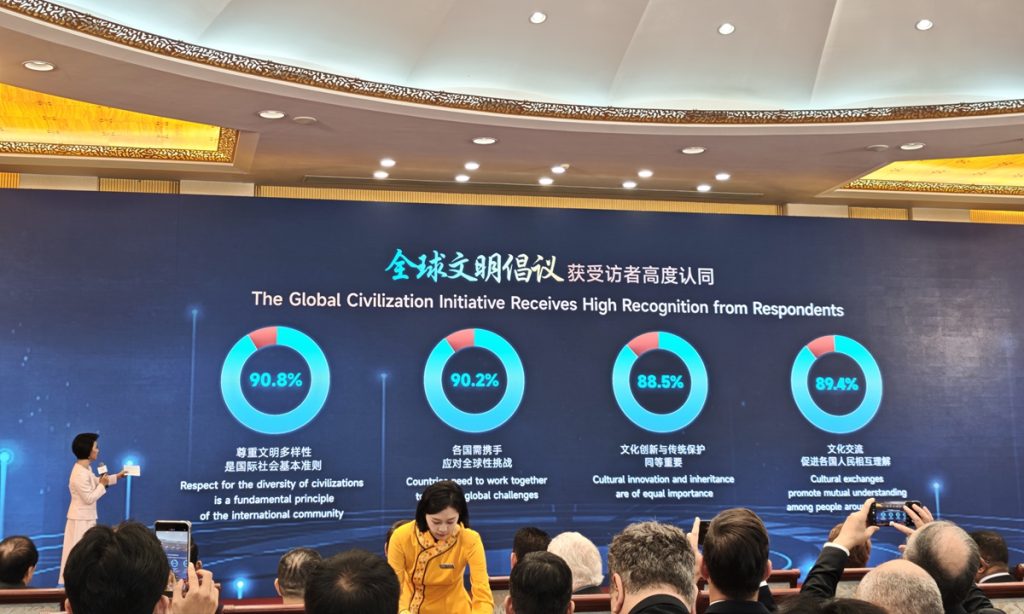Global Civilization Initiative evolves into broad consensus for addressing global challenges: poll

Global respondents believe that exchanges and mutual learning among civilizations inject stability into a turbulent world, and the Global Civilization Initiative (GCI) has evolved into a broad consensus for addressing global challenges, according to a poll released at a Friday sub-event themed "Cultural Inheritance and Innovation" of the Global Civilizations Dialogue Ministerial Meeting that kick off in Beijing.
The survey, jointly conducted by CGTN and the Renmin University of China, covered 12,302 respondents across 41 countries worldwide, reveals that respondents widely recognize inter-civilization exchanges and mutual learning as a crucial driving force for advancing human civilization and promoting world peace and development.
They positively assess the pivotal role of cultural inheritance and innovation in advancing human modernization. Chinese and international experts hailed the findings, stressing that the GCI offers a vital platform for dialogue and deeper understanding among diverse civilizations.
Fadli Zon, Indonesia's Culture Minister, told the Global Times on Friday that GCI was proposed on at "the right path at the right time," arguing that inter-civilizational dialogue offers the only sustainable way to resolve conflicts, counter misinformation and secure shared prosperity.
"We share the same planet and global village, so it's our responsibility to safeguard this shared home for development, peace, and prosperity," he said.
Roger T. Ames, humanities chair professor at Peking University, echoed that the world is better understood as a mosaic of interwoven civilizations bound by common values and centuries-old exchanges than as a patchwork of isolated nation-states.
"Tolerance of cultural differences is insufficient; instead, these differences become a source of mutual empowerment, driving a more connected, fair, and harmonious global community," Ames said.
During the breakout session, Chinese experts unveiled a comprehensive Global Research Program for Inter-Civilization Exchanges and Mutual Learning.
The initiative is designed to build a pluralistic, inclusive forum for sustained dialogue and to embed long-term cooperation mechanisms across cultures.
Under the plan, a worldwide academic network will pool expertise on civilizational studies, an annual global dialogue platform will be launched, and a global fund for peaceful exchange, connectivity, and development will finance joint projects.
Organizers also proposed a global award for contributions to civilizational exchange and connectivity to honor individuals and institutions that advance cross-cultural understanding, aiming to "safeguard the brilliant galaxy of human civilizations."
Media reported that nearly 140 Chinese and foreign guests from over 20 countries and regions attended the plenary. Centering on the GCI, they engaged in lively dialogue on "cultural inheritance" and "cultural innovation" in exchanges and mutual learning among civilizations.